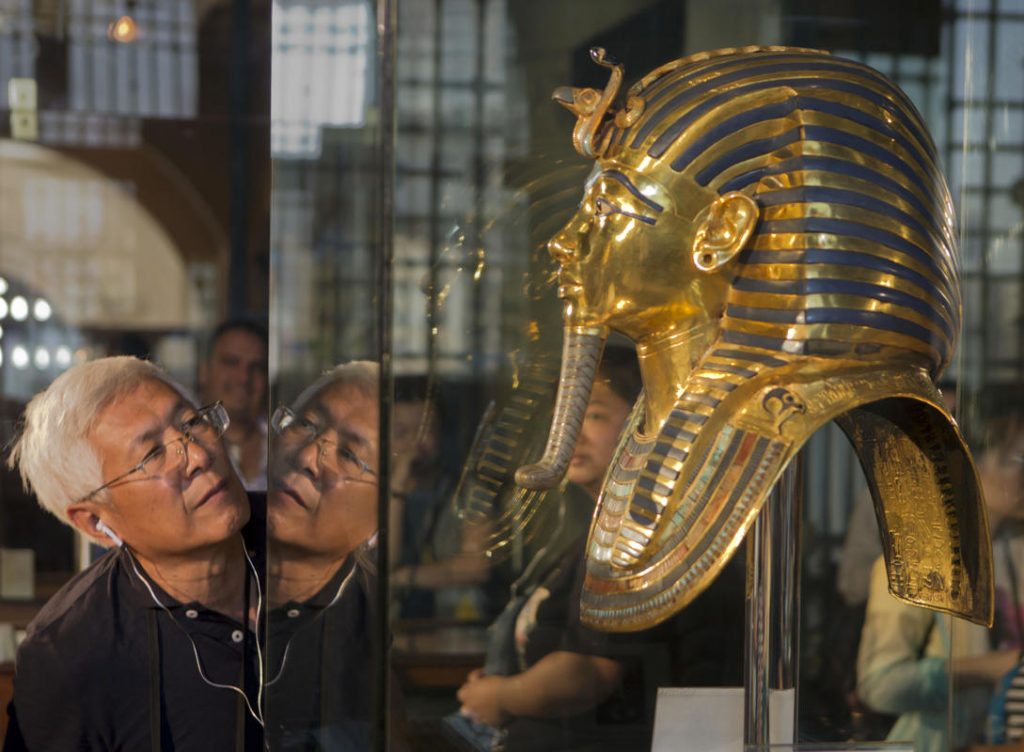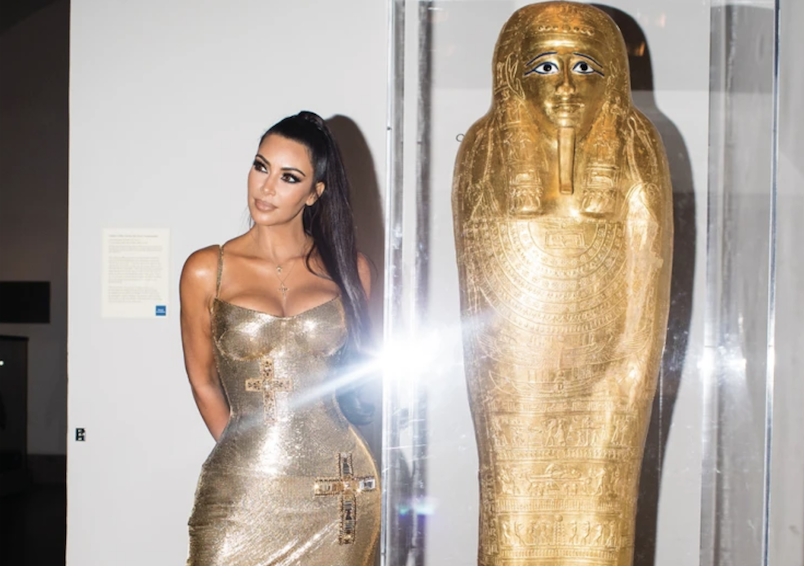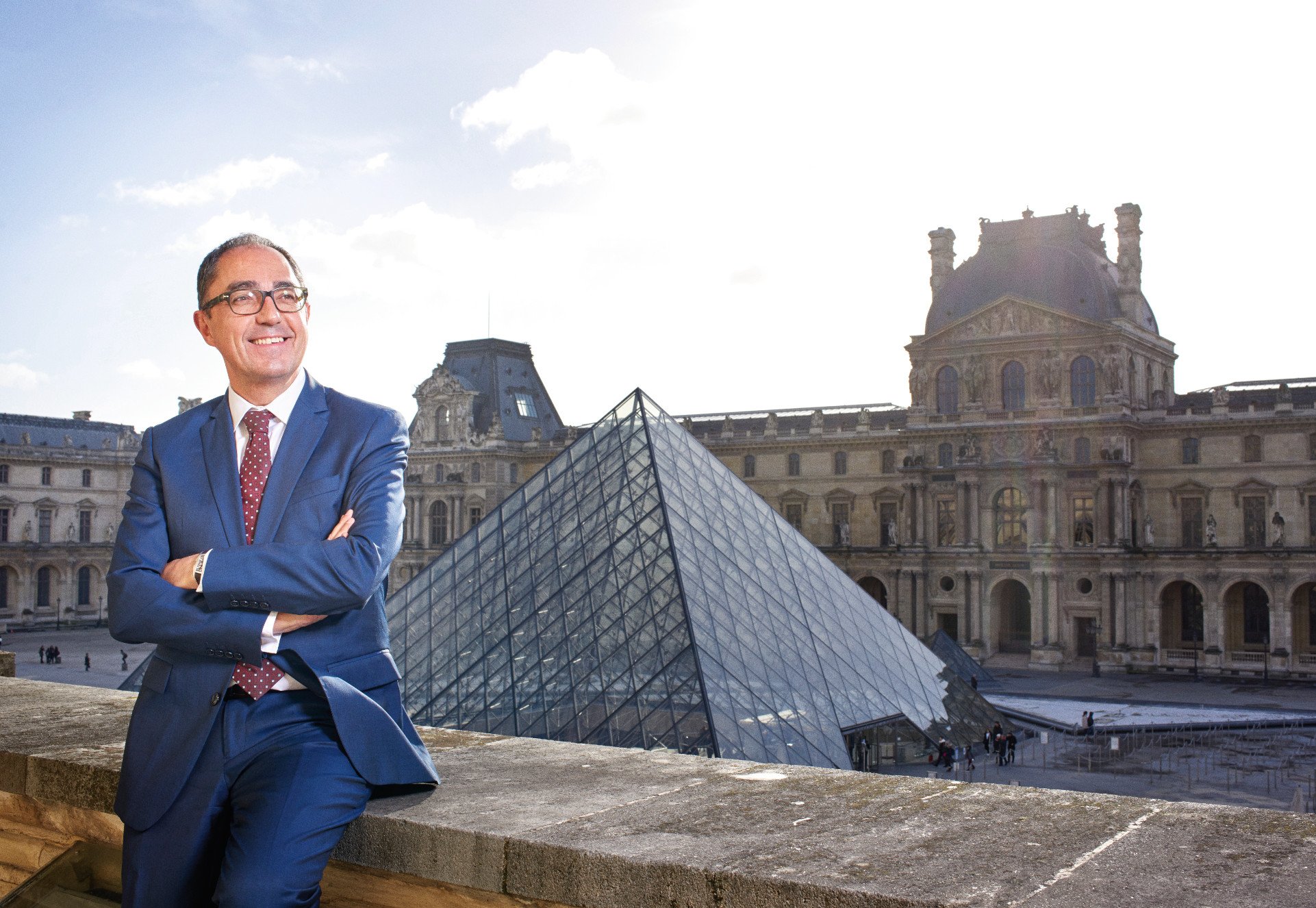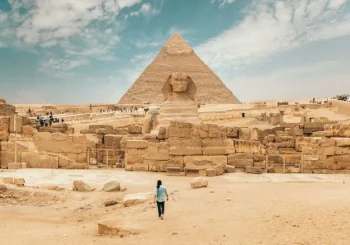Casting further doubts on the safety and legality of Egyptian artifacts abroad, the Louvre’s former director Jean Luc Martinez, has been accused of facilitating the illegal smuggling of artifacts over the past decade.
The case, which was initially reported by Le Monde, and Le Canard enchaîné prior to its reverberation across worldwide news outlets, has revealed that Martinez, was specifically accused of “turning a blind eye” to dubious provenance certificates proving the rightful acquisition of various artifacts hailing from across the Middle East and into the Louvre in Abu Dhabi.
He faces charges of money laundering and complicity in fraud.
Among the artifacts were five ancient Egyptian artifacts, including a granite stela of boy-king Tutankhamun, which was acquired for “dozens of millions of euros.”

A well-known figure in the world of French cultural patrimony as well as the field of Egyptology, Martinez served as a director in the prestigious and world-renown institution from 2013 to 2021.
In 2021, he was nominated for the position of ‘Ambassador for international cooperation in the field of cultural heritage’, by French President Emmanuel Macron. It is a role linked with the French Foreign Ministry, seeing him lead an active role in combating the prevention of art trafficking.
How did this happen?
The New Kingdom lunette stela is, undoubtedly, a work of art: it depicts Tutankhamun at the height of his reign, giving offerings to the god Osiris, and receiving one in return from a high-official. Like any other artifact depicting Egypt’s most iconic ‘golden-king’, debates surrounding its provenance and acquisition by the museum flare.
Egyptian artifacts have been at the heart of contention in local and international debates, with no end in sight to ensuring their safety or proving their acquisition.
Since the 2011 revolution, which saw millions of Egyptians protesting against former president Hosny Mubarak’s rule, chaos had ensued for various archaeological sites and museums across Egypt. The turmoil and upheaval of the Arab Spring affected various countries as well, in which a stream of artifacts furtively was taken to markets principally in Europe and the U.S.
As such, a four-year-long investigation led by France’s Central Office for the Fight against illegal Trafficking in Cultural Goods (OCBC) has identified that hundreds of historical artifacts left politically unstable countries, particularly from 2013 to 2017, reports French newspaper La Libération.
One such item, recuperated by Egyptian authorities in 2019, was the golden coffin of Nedjemankh, which had been on display at the Metropolitan Museum of Art (MET) in New York City, following a purchase that fetched up to USD 4 million.
Accordingly, Le Canard enchaîné reports that a police inquiry saw Martinez, Vincent Rondot, head of the Egyptian antiquities department, and Olivier Perdu, an Egyptologist and former professor at the Ecole du Louvre, taken into custody at the instructions of judge Jean-Michel Gentil. Yet, the latter two were released without charges.
Marc Gabolde, a university professor at Montpellier and Egyptologist, had signaled an issue with the provenance of the Tutankhamun stela to the Louvre, in 2018. He had found links between the artifact’s transportation outside of Egypt, and art dealer Habib Tawadros, a key accomplice in the MET’s Nedjemankh acquisition.

As it stands, Martinez was indicted on May 25; although he was also released, he remains under judicial supervision. Nonetheless, the case against Martinez remains far from conclusive. Under new evidence, the charges can be dropped rapidly.
The New York Times reports that Martinez, whose career has seen him develop an extensive 50-point plan on the protection of cultural treasures under threat worldwide, is tenaciously disputing the charge.
Louvre Abu Dhabi: a new home for Egyptian artifacts?
The Louvre, France’s most visited museum tapping into a record 10.2 million visitors pre-COVID, retains over 50,000 Egyptian artifacts. It is unclear how many Egyptian artifacts are housed in its sister branch in the United Emirates, although the museum homes a number of masterpieces, including a seated statue of Ramses II, and a painted coffin of a princess, among other items.

This is not the first time the museum has found itself at the heart of contention. Prior to its inauguration in 2017, the Egyptian cabinet’s information and Decision Support Center maintained that ancient Egyptian antiquities at the Louvre Abu Dhabi had been procured legally as circulating media reports reported otherwise.
In light of the recent developments, Egyptian authorities have yet to comment.
Nonetheless, Egypt’s historic Cairo museum is currently undergoing renovation with a consortium of five European museums, including the Louvre, under a € 3 million grant.
Featured image courtesy of GETTY Images.







Comments (2)
[…] into stolen artifacts in France after news broke that the Louvre Museum’s former director smuggled five Egyptian artifacts into the museum’s collection.Egypt’s continuing repatriation efforts […]
[…] into stolen artifacts in France after news broke that the Louvre Museum’s former director smuggled five Egyptian artifacts into the museum’s […]